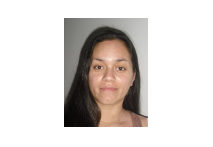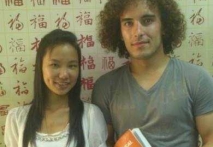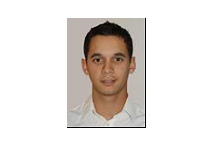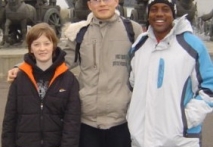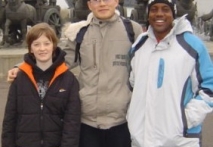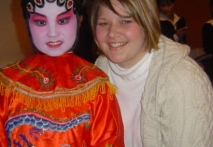学习心得
语风汉语学生Jennifer
学习心得
语风汉语学生Jennifer
我叫Jennifer,我非常喜欢在语风汉语无锡校学习汉语,这是一个非常好的学...
语风汉语无锡校 Zack
学习心得
语风汉语无锡校 Zack
我叫Zack,我是法国人,无锡语风汉教中心是一个学习中国文化和对外汉语的好...
语风汉语学生Kevin
学习心得
语风汉语学生Kevin
语风汉语是一个最理想的学习汉语和中国文化的好地方,学校给我们提供了很多...
语风汉语学生Florent
学习心得
语风汉语学生Florent
我非常喜欢无锡语风汉语学校,这里真的有最简单的汉语学习方法,我学习汉...
语风汉语学生Brad
学习心得
语风汉语学生Brad
我叫Brad,我是澳大利亚人,我再语风汉语学校学习汉语。我现在可以独立和我的...
语风汉语我的无锡学习汉语之路
学习心得
语风汉语我的无锡学习汉语之路
Cherry Queen 中文名: 钱沫以 &nbs...
无锡语风汉语优秀汉语学生Victoria
学习心得
无锡语风汉语优秀汉语学生Victoria
维多利亚Victoria,来自德国的一位11岁的小女孩 ,现读于语...
无锡语风汉语外国学生Michael的汉语学习之路
学习心得
无锡语风汉语外国学生Michael的汉语学习之路
Michael 刚刚来我们无锡语风汉语学校不久的美国学...
苏州汉语学生Jude
学习心得
苏州汉语学生Jude
我叫Jude,在苏州语风汉语学校学习汉语,我也在无锡语风汉语学校学习过很长时间...
无锡语风汉语学校Jessie
学习心得
无锡语风汉语学校Jessie
我学习汉语已经八年了,我能听明白别人说汉语,但是我自己说汉语却觉得说...
汉语 加官方
关注了解更多对外汉语资讯

0510-81151808
1866 1199 988
Sandy.Swun
519988808
无锡新区长江一号 茂业
深茂商务中心8号楼405室
无锡语风学校
语风汉语教学中心
无锡语风国际教育交流中心
Wuxi Mandarin Education School
-
Home > 资讯中心 > 语风外国语教师博客展播
汉语拼音 Chinese Pīnyīn
Function:Just like the phonetic alphabets in English, Pīnyīn helps us to read Chinese words.Formation:
Initials 声母 shēng mǔ
Finals 韵母 yùn mǔ
Tones 声调 shēng diào
e.g. 你 (you) n-i-ˇ nǐ
好 (good,fine) h-ao-ˇ hǎo
声调 shēng diào
The Chinese putonghua has four basic tones. They are shown by the tone-marks:ˉ(the 1st tone),ˊ(the 2nd tone),ˇ(the 3rd tone),ˋ(the 4th tone). Different tones may express different meanings.
bā bá bǎ bà
eight pull target dad
mā má mǎ mà
mum numb horse scold
Place of the Tone-mark
1. The tone-mark should be placed over the vowels,eg:
lā, gōng, chē
2. When a tone-mark is placed above the vowel i, the dot over it must be left out,eg:
bì,lín,tīng
3. A compound final carries two or more vowels, the tone-mark is placed over the vowel which pronounced with the mouth opening wider and louder,usually a,o,e,eg:
lái, piào, dōu
轻声(the Neutral Tone)
Every Chinese character in Chinese Putonghua has its specific tone.But sometimes,in a word or a sentence some syllables lose their original tones and become weak and short, therefore it is called the neutral tone.The neutral tone syllables are shown by the absence of the tone-mark, for example:
Bàba 爸爸(father,dad)
māma 妈妈(mother, mum)
声母 shēng mǔ
Consonants, 21
When used as initials, the following consonants are pronounced roughly the same as they are in English.
b p m f d t n l g k h j s
b
bō luó
菠萝 (pineapple)
bà ba
爸爸 (dad)
P
pó po
婆婆(mother-in-law)
pǎo bù
跑步 (running,run)
m
mā mā
妈妈 (mum)
mǎi
买 (buy)
f
chī fàn
吃饭 (eating)
fēng
风 (wind)
d
dà
大 (big, huge)
dìdi
弟弟 (younger brother)
t
tī zi
梯子 (ladder)
tài yáng
太阳(sun)
n
nán rén
男人 (male,man)
ná
拿 (take,pick,hold)
l
lóng
龙 (dragon)
kuài lè
快乐(happy)
g
gē ge
哥哥 (older brother)
gāo
高 (tall, high)
k
kě
渴 (thirsty)
kǎo shì
考试(exam)
h
hé
河 (river)
hǎi
海 (sea)
j
jī
鸡 (chicken)
jiā
家( home)
s
sì
四 (four)
sī niàn
思念 (miss someone)
Tips
1.h sounds like "h" in the English word"her", but it must be added more friction of the breath than it is in English.
2.p sounds like "p" in the English word"port"; t sounds like"t" in the English word"term";k sounds like "k"in the English word"key";But the Chinese p,t,k must be articulated with much more aspiration than they are in English.
When used as initials, the following consonants are pronounced quite differently from what they are in English.
q x z c zh ch sh r
q
qī
七 (seven)
qián
钱(money)
x
xī
西(the west)
xǐ huān
喜欢(like)
z
zì
字(characters)
zuò
坐(sit)
c
cài
菜 (vegetable, dishes)
cāi
猜(guess)
zh
zhè
这(this)
zhàn
站 (stand)
ch
chī
吃(eat)
cháng
长(long)
sh
lǎo shī
老师(teacher)
shí
十 (ten)
Listen to all of the 21 Initials and repeat them
b p m f d t n l
g k h j q x zh
ch sh r z c s
r
rén
人 (human,people)
rè
热 (hot)
韵母 yùn mǔ
39, vowels,or vowel+n/ng
Single finals
a ā á ǎ à
o ō ó ǒ ò
e ē é ě è
i ī í ǐ ì
u ū ú ǔ ù
ü ǖ ǘ ǚ ǜ
i
1. When i stands by itself as a syllable, it should be written as yi.
2. i should be written as y when it is placed at the beginning of a final standing by itself as a syllable, or y is added before i,eg:
ia-ya ie-ye iou-you iang-yang
u
1. When u stands by itself as a syllable, it should be written as wu.
2. When u combines with other finals to form syllables, it should be written as W,eg:
ua-wa uo-wo uei-wei uan-wan
